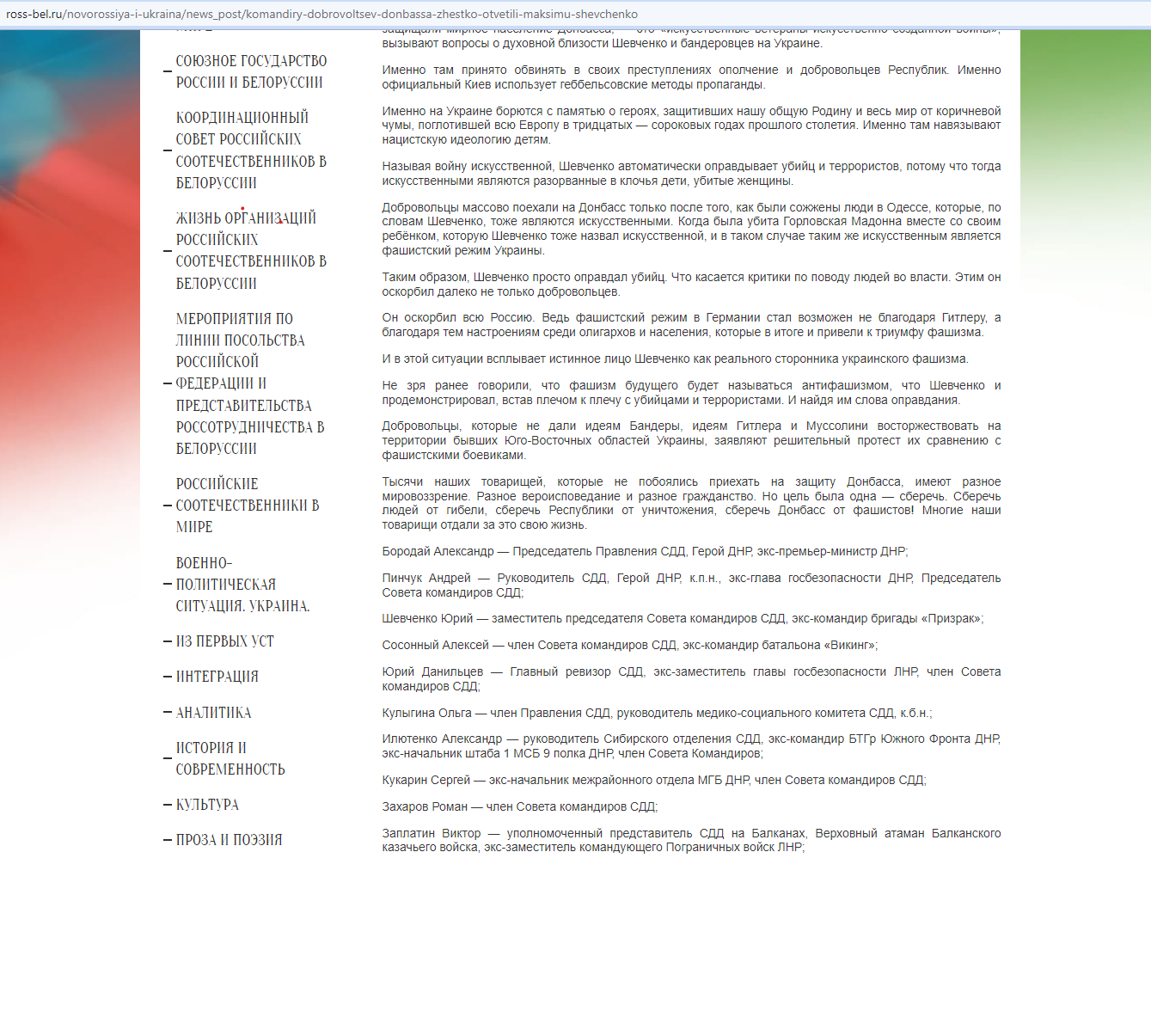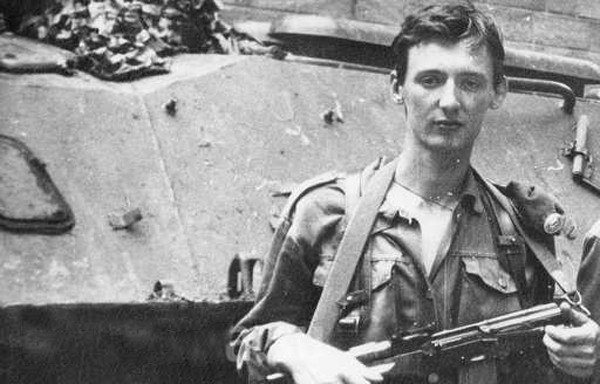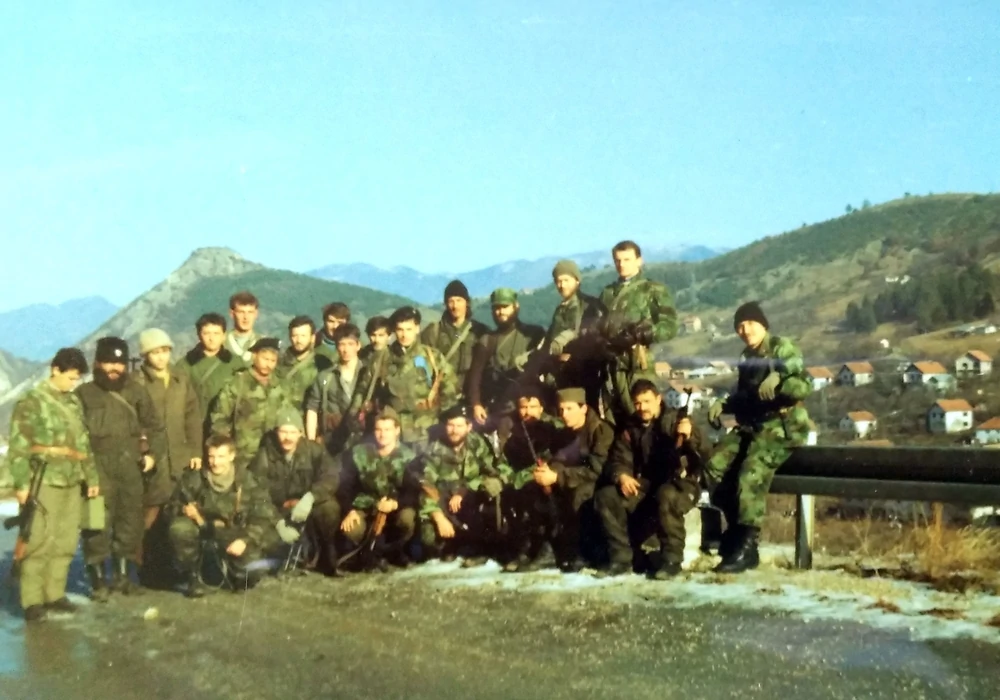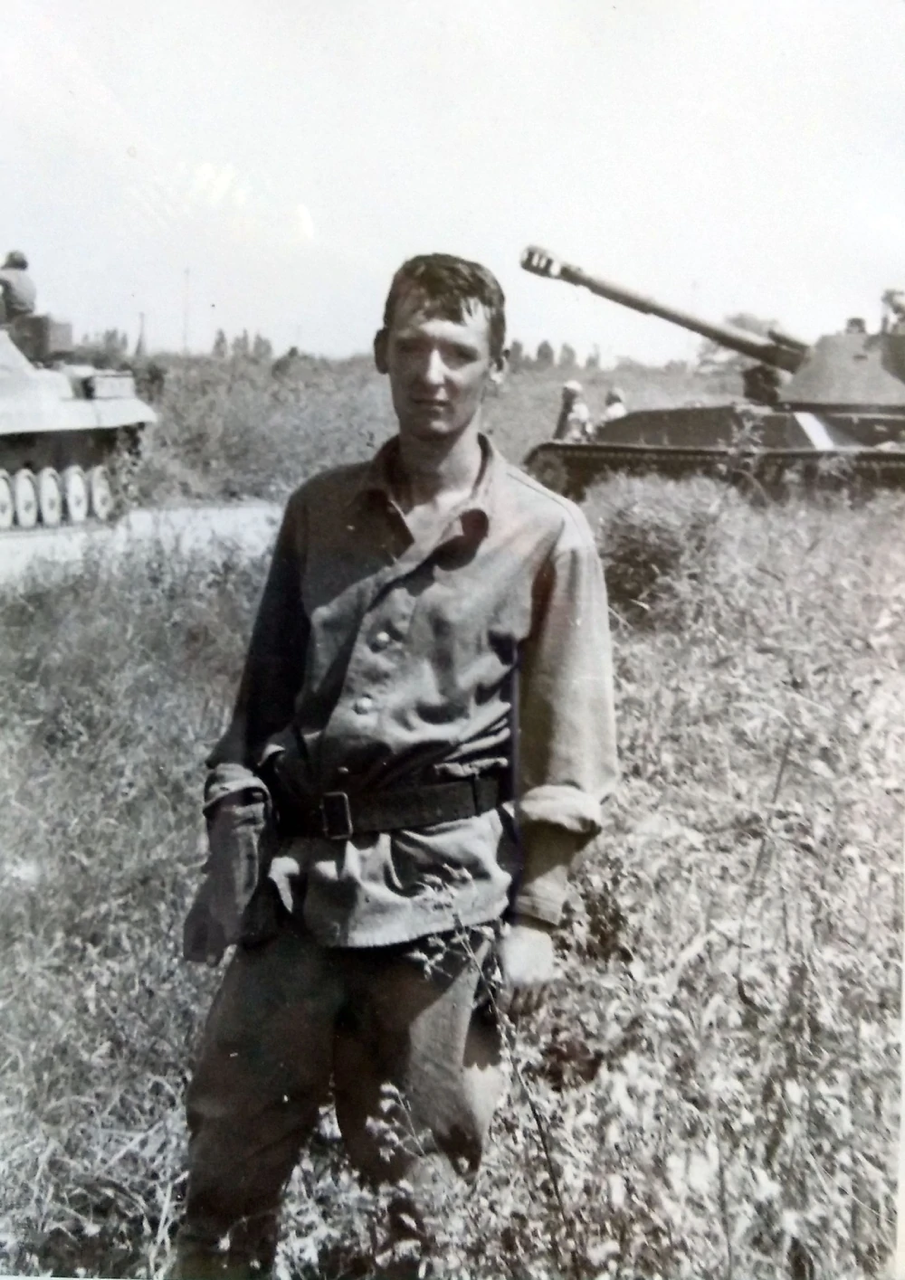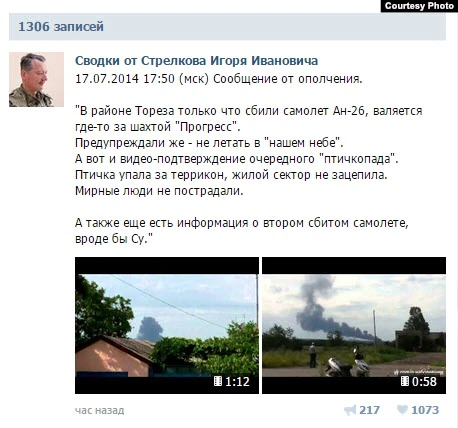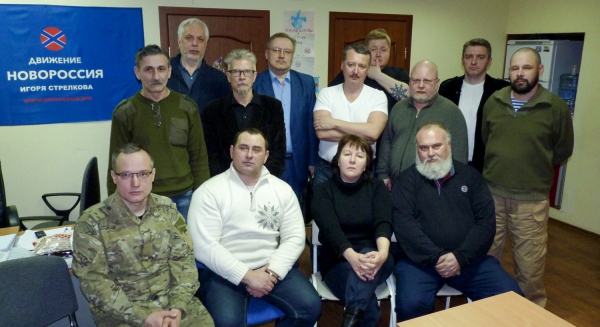Kateryna Gubareva, the wife of criminal and leader of "Free Donbas" movement Pavlo Gubarev, was responsible for escorting Girkin to his destination of Sloviansk. According to the words of Gubareva, which would later be recorded in her husband's book "The Torch of Novorossiya", the initial plan was for Girkin and his contingent of approximately fifty people to travel to Shakhtarsk and establish a headquarters there.
Girkin's actions and methods during the invasion of the Donetsk region of Ukraine reflect those of a classically trained special agent. For example, those he employed brought several hundred sets of uniforms in addition to weapons in order to establish an illegal armed group upon arrival. Locals who were once from the criminal or more modest reaches of society then formed the local backbone of the future occupation government, presenting themselves as "the people's militia" and becoming instant legends for Russian propaganda. Aleksandr Borodai, the so-called "Prime Minister" of the self-proclaimed DPR, appointed his comrade Girkin to the post of Minister of Defense on May 16, 2014, making Girkin the de facto commander of all illegal armed formations in the occupied territory of Ukraine's Donetsk region.
In Sloviansk, Girkin established brutal military field tribunals. Through his desire to execute innocent people, Igor purportedly cited a Decree of the long-defunct Presidium of the USSR, which dated back as far as June 22, 1941. He later confirmed in an interview with Dmytro Gordon that pro-Euromaidan activists Yurii Dyakovskyi and Yuriy Poprovka were put to death by firing squad on his orders. In addition to these two activists, four others were executed on his orders - a local resident and three "fighters from his unit". Girkin also openly admitted his responsibility for the death of Volodymyr Rybak, a member of the Horliv city council. Several people in civilian clothes that Igor considered to be saboteurs were also executed.
On July 5, 2014, Girkin departed from Sloviansk for Donetsk. On the day that Malaysia Airlines Flight 17 was shot down, a post was published on a social media page managed by Girkin, ("Notes from Igor Ivanovych Strelkov") which published frequent "official announcements" regarding the illegal armed groups that operated in Ukraine’s occupied territories. The post detailed the alleged downing of an AN-26 aircraft on July 17, 2014 before it was subsequently deleted. Fortunately, such posts and messages are often recoverable, as visual copies and records are frequently saved by other users.





